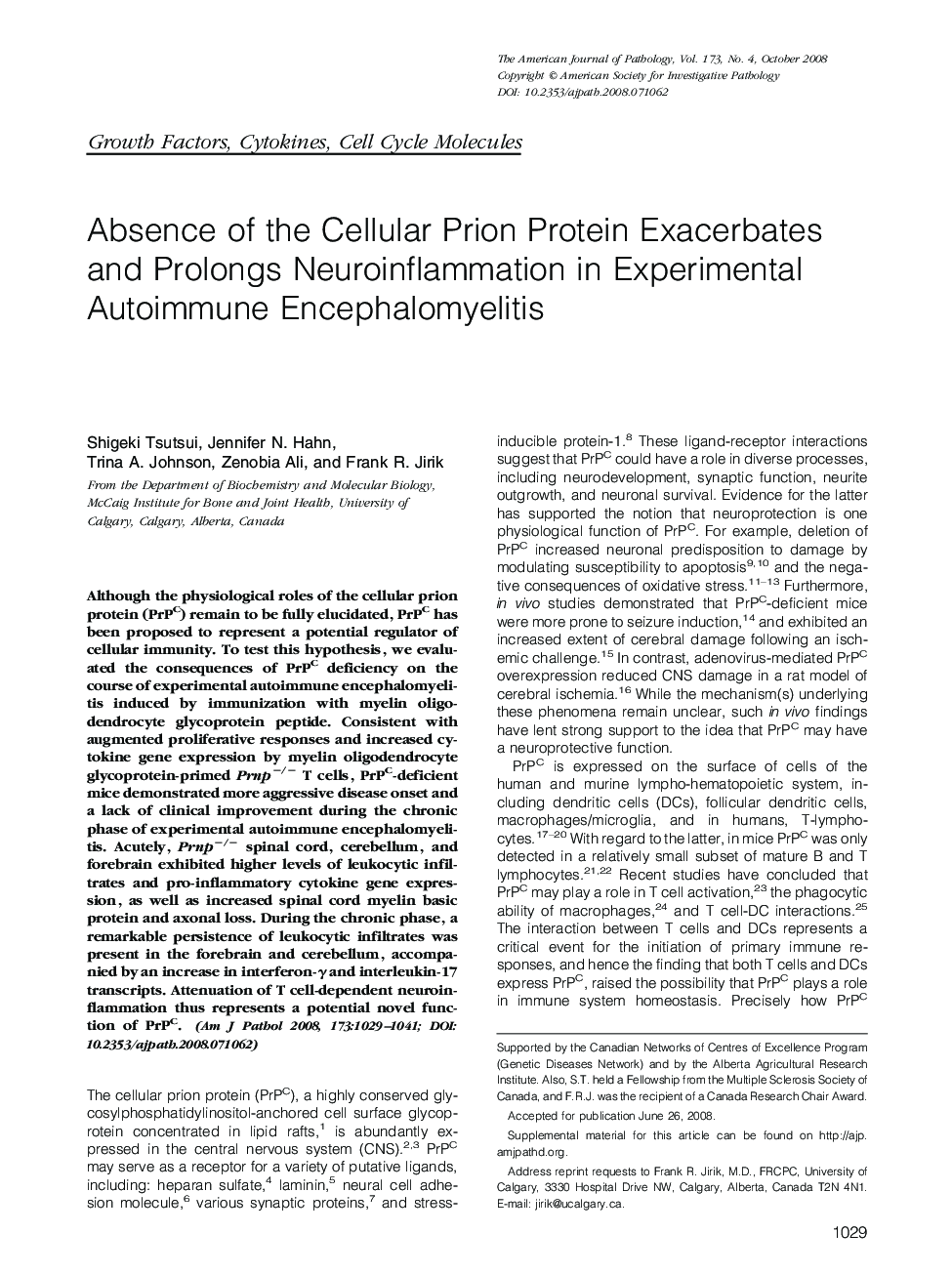| Article ID | Journal | Published Year | Pages | File Type |
|---|---|---|---|---|
| 5937986 | The American Journal of Pathology | 2008 | 13 Pages |
Although the physiological roles of the cellular prion protein (PrPC) remain to be fully elucidated, PrPC has been proposed to represent a potential regulator of cellular immunity. To test this hypothesis, we evaluated the consequences of PrPC deficiency on the course of experimental autoimmune encephalomyelitis induced by immunization with myelin oligodendrocyte glycoprotein peptide. Consistent with augmented proliferative responses and increased cytokine gene expression by myelin oligodendrocyte glycoprotein-primed Prnpâ/â T cells, PrPC-deficient mice demonstrated more aggressive disease onset and a lack of clinical improvement during the chronic phase of experimental autoimmune encephalomyelitis. Acutely, Prnpâ/â spinal cord, cerebellum, and forebrain exhibited higher levels of leukocytic infiltrates and pro-inflammatory cytokine gene expression, as well as increased spinal cord myelin basic protein and axonal loss. During the chronic phase, a remarkable persistence of leukocytic infiltrates was present in the forebrain and cerebellum, accompanied by an increase in interferon-γ and interleukin-17 transcripts. Attenuation of T cell-dependent neuroinflammation thus represents a potential novel function of PrPC.
